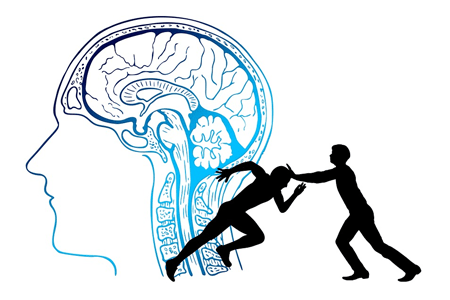Sports psychology is a field of study that focuses on the psychological factors that impact athletic performance. It explores how thoughts, emotions, and behaviors can affect an athlete’s ability to perform at their best. Sports psychologists work with athletes at all levels, from beginners to professionals, to help them overcome mental barriers and develop the mental skills necessary for success. In this article, we will delve into the fascinating world of sports psychology and explore how it can help athletes improve their performance on the field, court, or track.
Contents
History of Sports Psychology

Sports psychology is a relatively new field, with its roots in the early 1900s. Here is a brief history of sports psychology:
- Early work: The earliest work in sports psychology was done by Norman Triplett, a psychologist who studied the impact of social facilitation on cyclists in the late 1800s. In 1920, Coleman Griffith, a psychologist at the University of Illinois, began studying the psychological factors that impact athletic performance.
- Growth in the 1960s and 1970s: In the 1960s and 1970s, the field of sports psychology began to grow rapidly. Researchers such as Rainer Martens and Bruce Ogilvie conducted studies on the psychological factors that contribute to athletic success, and sports psychology became a recognized field of study.
- Development of mental skills training: In the 1980s, sports psychologists began to develop mental skills training programs that focused on developing mental skills such as visualization, goal-setting, and positive self-talk. These programs were designed to help athletes optimize their mental games and perform at their best.
- Integration into sports: In the 1990s and 2000s, sports psychology began to be integrated into the world of sports. Many professional sports teams began to hire sports psychologists to work with their athletes, and mental skills training became a common component of athletic training programs.
- The current state of the field: Today, sports psychology is a rapidly growing field that encompasses a wide range of research and practice. Sports psychologists work with athletes at all levels, from beginners to professionals, and use a variety of techniques to help athletes optimize their mental game and achieve peak performance.
Key Concepts of Sports Psychology
Here are some of the key concepts of sports psychology:
- Motivation: Motivation is a key concept in sports psychology, as athletes need to maintain their drive and focus to perform at their best. There are two types of motivation: intrinsic and extrinsic. Intrinsic motivation comes from within and is driven by a love of the sport and a desire to improve. Extrinsic motivation comes from external factors, such as rewards or recognition.
- Goal-setting: Goal-setting is another important concept in sports psychology, as it helps athletes focus their efforts and measure their progress. Goals should be specific, measurable, achievable, relevant, and time-bound (SMART), and athletes should have both short-term and long-term goals.
- Self-confidence: Self-confidence is crucial for athletes, as it helps them believe in their abilities and perform at their best. Sports psychologists use techniques such as positive self-talk and visualization to help athletes build their self-confidence.
- Focus and concentration: Focus and concentration are essential for athletes to perform at their best. Sports psychologists use techniques such as mindfulness and visualization to help athletes maintain their focus and stay in the present moment.
- Mental toughness: Mental toughness is the ability to persevere through challenges and setbacks. Sports psychologists work with athletes to develop mental toughness through techniques such as positive self-talk and visualization.
- Arousal regulation: Arousal regulation is the ability to manage the level of excitement or anxiety that an athlete experiences. Sports psychologists use techniques such as relaxation training and breathing exercises to help athletes regulate their arousal levels.
- Imagery: Imagery is the use of mental imagery to visualize a successful performance. Sports psychologists use imagery to help athletes prepare for competition and overcome performance anxiety.
Key Principles of Sports Psychology

Sports psychology is a complex field that encompasses many different principles and practices. Here are some of the key principles of sports psychology:
- Individual Differences: Each athlete is unique, with their own set of strengths, weaknesses, and personalities. Sports psychologists recognize the importance of individual differences and work with athletes to develop personalized mental skills training programs that are tailored to their specific needs.
- Goal Orientation: Goal orientation is an important principle of sports psychology. Athletes need to have clear goals that are specific, measurable, and time-bound to focus their training and measure their progress.
- Mental Rehearsal: Mental rehearsal involves practicing mental skills, such as visualization and positive self-talk, to improve performance. Sports psychologists use mental rehearsal to help athletes develop the mental skills they need to perform at their best.
- Arousal Management: Arousal management is the ability to control the level of excitement or anxiety that an athlete experiences. Sports psychologists use techniques such as relaxation training and deep breathing to help athletes regulate their arousal levels.
- Feedback: Feedback is an essential component of sports psychology. Athletes need to receive constructive feedback on their performance to improve. Sports psychologists use feedback to help athletes identify areas for improvement and develop strategies for addressing them.
- Self-Talk: Self-talk is the internal dialogue that an athlete has with themselves. Sports psychologists teach athletes to use positive self-talk to build confidence and stay focused during competition.
- Resilience: Resilience is the ability to bounce back from setbacks and challenges. Sports psychologists teach athletes to develop resilience through techniques such as positive self-talk and visualization.
- Mindfulness: Mindfulness involves being fully present in the moment and aware of one’s thoughts and feelings. Sports psychologists use mindfulness to help athletes stay focused and present during competition.
Applications of Sports Psychology
Here are some of the key applications of sports psychology:
- Performance enhancement: Sports psychology is used to enhance an athlete’s performance by improving their mental skills, such as focus, concentration, and motivation. By developing these skills, athletes can improve their overall performance and achieve their goals.
- Injury recovery: Sports psychology can help athletes recover from injuries by addressing the psychological aspects of injury, such as fear of reinjury and loss of confidence. By developing coping strategies and positive self-talk, athletes can overcome these psychological barriers and return to competition more quickly.
- Team building: Sports psychology can be used to build cohesive teams and improve team dynamics. By teaching communication and conflict resolution skills, sports psychologists can help teams work more effectively together.
- Mental preparation: Sports psychology can help athletes prepare mentally for competition by using techniques such as visualization, goal-setting, and positive self-talk. These techniques can help athletes reduce anxiety and perform at their best.
- Psychological rehabilitation: Sports psychology can be used to help athletes who are struggling with mental health issues such as depression, anxiety, and eating disorders. By providing counseling and support, sports psychologists can help athletes overcome these challenges and return to competition.
- Career transition: Sports psychology can be helpful for athletes who are transitioning out of their athletic careers. By providing career counseling and helping athletes develop new skills and interests, sports psychologists can help athletes successfully transition to a new career.
Considerations To Keep In Mind While Applying Sports Psychology

While sports psychology can be a powerful tool for athletes looking to improve their performance and achieve their goals, there are several important considerations to keep in mind when applying sports psychology:
- It takes time: Developing mental skills and strategies through sports psychology takes time and practice. Athletes should be prepared to commit to a long-term program to see results.
- It’s not a magic solution: Sports psychology is not a magic solution that will instantly transform an athlete’s performance. It requires hard work, dedication, and a willingness to try new techniques and strategies.
- Individual differences: Every athlete is unique, with their own set of strengths, weaknesses, and personalities. Sports psychologists should take individual differences into account when developing a mental skills training program.
- Integration with physical training: Sports psychology should be integrated with an athlete’s physical training program to achieve the best results. Mental skills training should be incorporated into an athlete’s regular training routine.
- Professional guidance: While there are many resources available for athletes who want to learn more about sports psychology, it’s important to seek guidance from a qualified sports psychologist or mental skills coach. These professionals have the expertise and training to provide individualized guidance and support.
- Consistency: Consistency is key when applying sports psychology. Athletes should practice mental skills and strategies regularly to see the best results.
- Mind-body connection: It’s important to remember that the mind and body are connected and that mental skills and strategies can impact physical performance. Athletes should take care of their physical health as well as their mental health to achieve their best performance.
Relevance In the Modern World
Sports psychology is highly relevant in the modern world, as the demands placed on athletes are increasing and competition is becoming more intense. Here are some reasons why sports psychology is important in the modern world:
- Mental health: Athletes, like everyone else, are susceptible to mental health challenges such as depression, anxiety, and stress. Sports psychology can help athletes manage these challenges and build resilience.
- Performance enhancement: With competition at an all-time high, athletes need to perform at their best to succeed. Sports psychology can help athletes optimize their mental games and achieve peak performance.
- Injury recovery: Injuries are an inevitable part of sports, and they can be both physically and mentally challenging for athletes. Sports psychology can help athletes recover from injuries and get back to competition more quickly.
- Team building: Team dynamics are critical to the success of a team, and sports psychology can be used to build stronger teams through improved communication, conflict resolution, and cohesion.
- Career transition: Athletes eventually retire from their athletic careers and transition to new careers. Furthermore, Sports psychology can help athletes navigate this transition and develop new skills and interests.
- Youth development: Youth sports are an important part of many communities, and sports psychology can be used to help young athletes develop the mental skills they need to succeed both on and off the field.
Conclusion
In conclusion, sports psychology is a fascinating field that focuses on the psychological factors that impact athletic performance. From motivation and self-confidence to focus and concentration, there are a variety of psychological factors that can affect an athlete’s ability to perform at their best.


